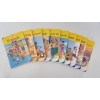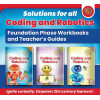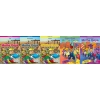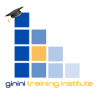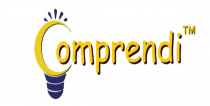The recipe for successful education
This time of the year social media buzzes with stories of parents that struggle to get their children placed in a school of their choice. This leaves many parents with home education as the only available option. However, parents suddenly confronted with this option are concerned that this kind of education cannot provide the same standard of education as the traditional school system with its multibillion rand budget and thousands of qualified teachers. To evaluate whether home education can provide at least the same standard of education, it is important to understand the essential ingredients for successful education.
To find the ingredients, it is necessary to understand what education is. Although South Africa has thousands of pages of laws and regulations on education, it does not contain a definition of education. International law must be consulted for a definition. The Universal Declaration of Human Rights defines education as follows : “Education shall be directed to the full development of the human personality and to the strengthening of respect for human rights and fundamental freedoms.” This definition has some important implications.
Firstly, every child has a unique personality. This implies that successful education must be adaptable to develop the unique personality of each individual child. In a home education setting, parents can customise the curriculum to develop the personality of each individual child. This certainly is an advantage over a school system that only makes use of a single National Curriculum (CAPS).
Secondly, parents have the best insight into the personality of their children since they have been constantly intimately involved with the children since birth. For this reason, the parents should be responsible to guide and direct the education of their children. This is clearly articulated in the Children’s Act which states that parents are responsible to care for their child, and this care includes “guiding, directing and securing the child’s education …”. Since parents can directly guide and direct the education of their child in a home education setting, it is certainly an advantage over a school system where parents have very little influence on the education provided.
The importance of parental involvement is confirmed by the research of Gordon Neufeld, a Canadian development psychologist. According to his research, children are most strongly influenced by people with whom they have an attachment. Initially children have a strong attachment with their parents and are influenced by them. When children are sent to institutions they increasingly spend more time with their peer group and less with their parents, and at some point their attachment with the peer group replaces the attachment with the parents. Peer pressure leads to behaviour that conflicts with the values of the parents. This behaviour includes the use of drugs, liquor and cigarettes as well as sexual promiscuity.
When the influence of peers takes over control, parents and teachers increasingly struggle to guide and direct the education of their child. Parents become mere spectators as they see their children continually making bad decision. For education to be successful it is therefore important that it takes place in an environment where attachment between parent and child is not negatively affected. Otherwise, those who have the best understanding of the personality of the child lose the influence to guide and direct the education of the child, and this obstructs the development of the personality of the child.
Research by Sugatra Mitra, winner of the sought after TED price, has also questioned the assumptions of mainstream education. His research around the “Hole in the Wall” (a computer placed in a wall in a slum) has shown that children are capable to gain skills such as computer literacy, reading, writing, mathematics and science without instruction by a qualified teacher, if they are given access to computers and the internet. He further found that this self-learning process works better in the presence of adults that provide guidance and encouragement, and not through formal instruction and assessment. Highly qualified teachers are not required for learning to take place, but rather technology and adults that provide guidance and encouragement.
Although home education does not have a multibillion rand budget and thousands of qualified teachers, it does have the essential ingredients for successful education. These ingredients are adaptability and parental involvement.

Photo : Sugatra Mitra (4th from left) and the author (5th from left) during Global Homeschool Conference in Rio de Janeiro in 2016
Comments
Legal & Research
Centres
Homeschool ABC
Support
Curriculums
LEARNING TO READ EASY WITH THE ...
Parents and educators – these popular reading books are ...
Ginini Training Institute
Ginini Academy is an EdTech home education content provider ...
Has no content to show!









